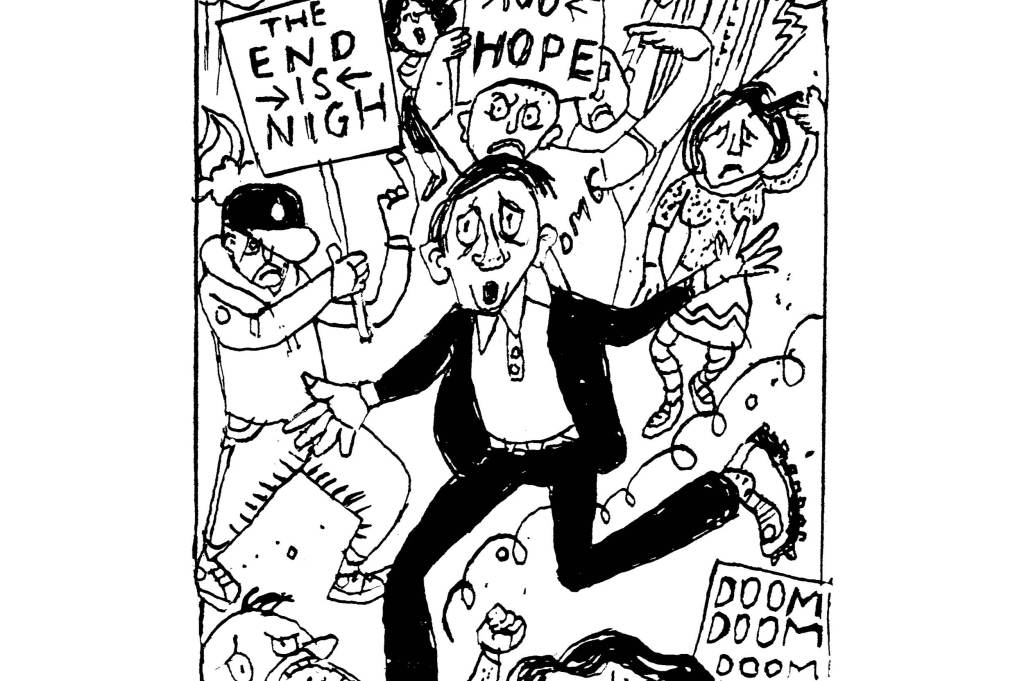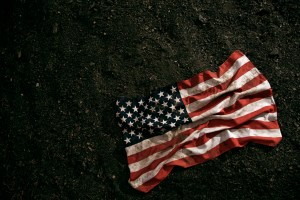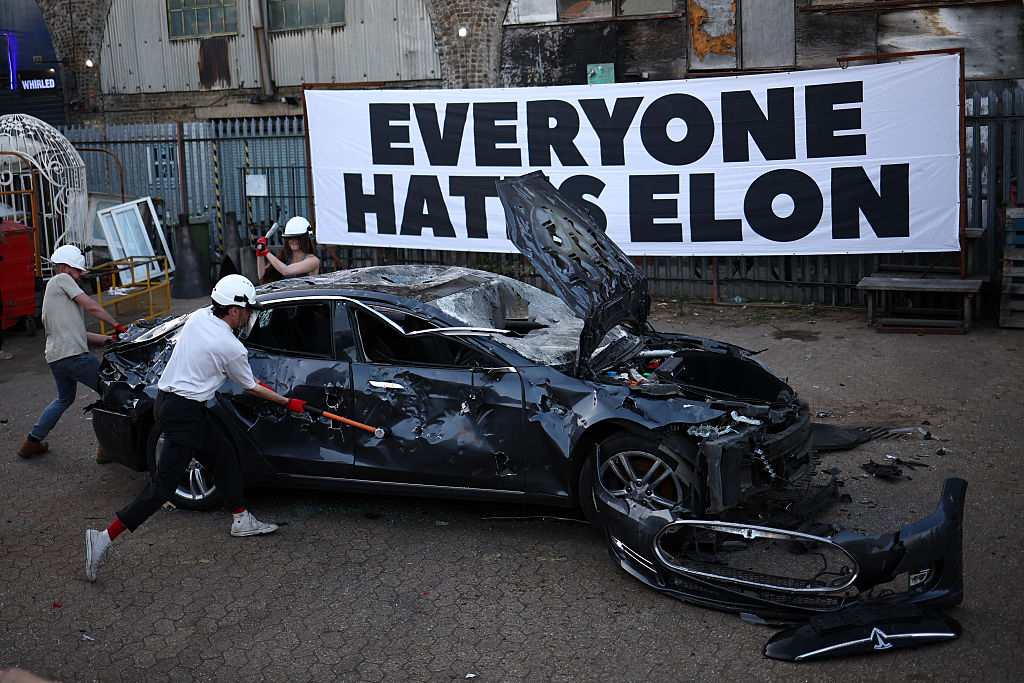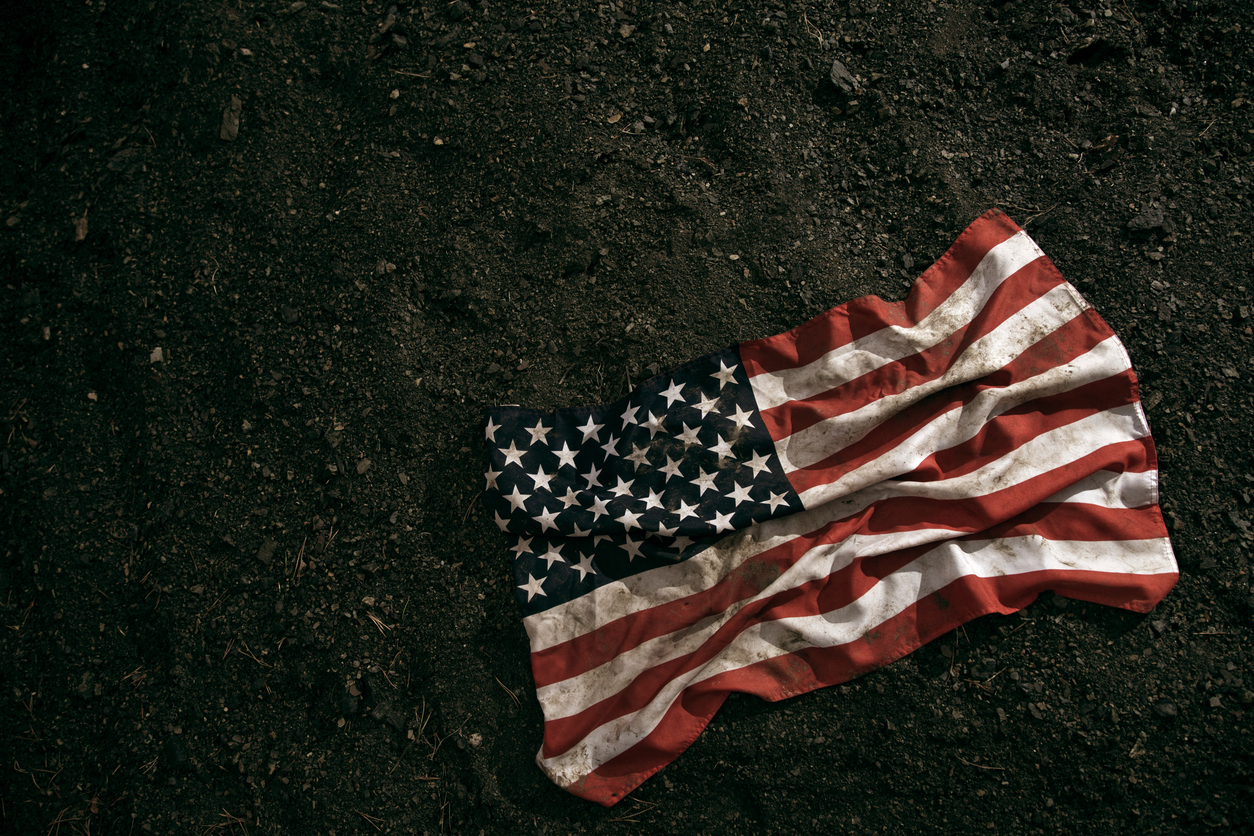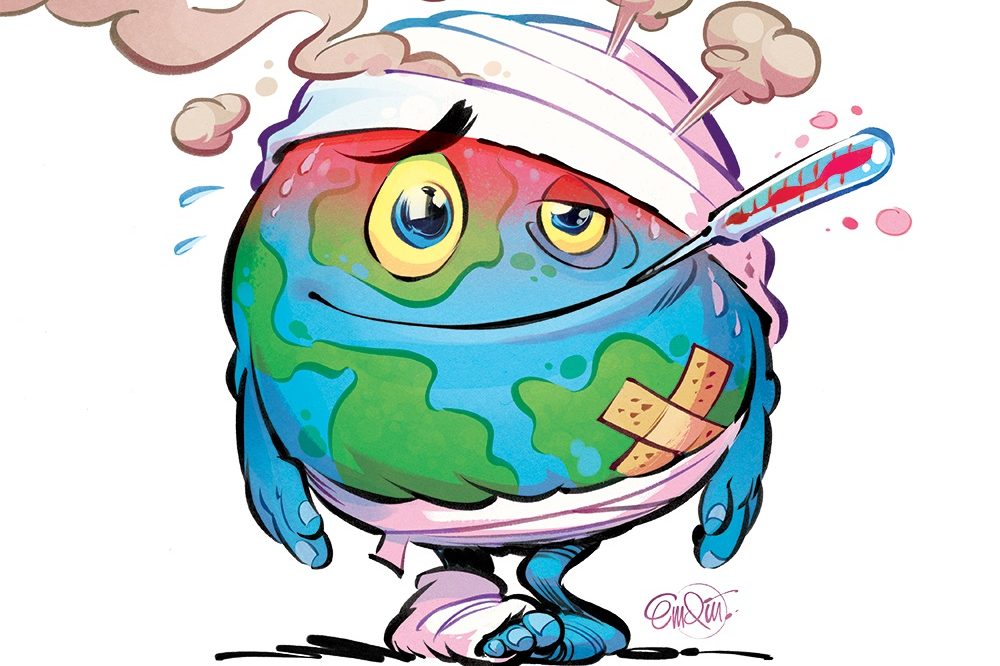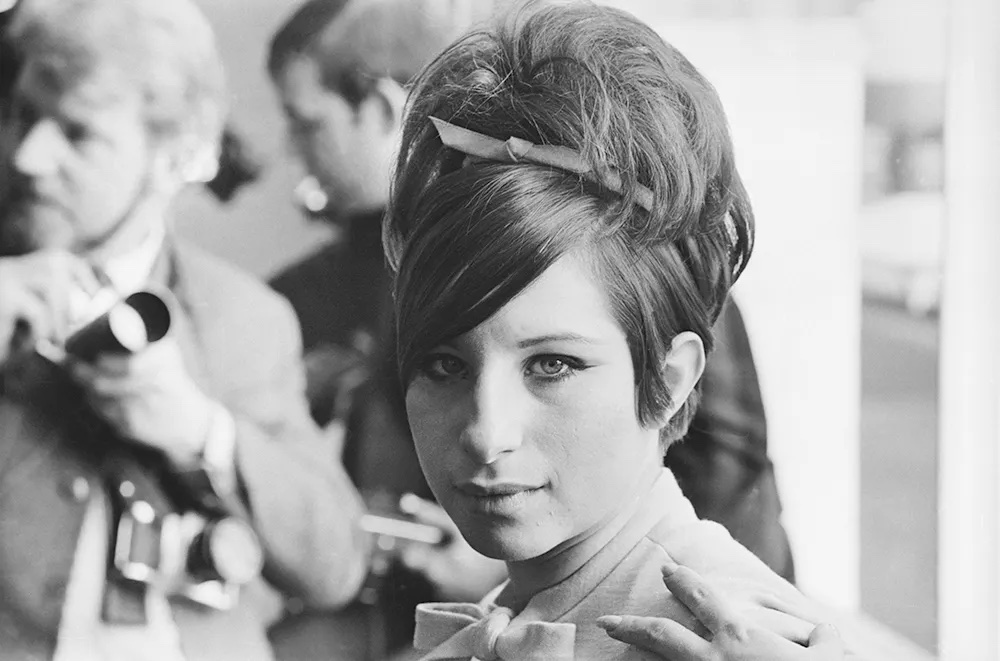A post came across my social media feed last week that looked like half the posts in my social media feed: a smiling Caucasian couple at an outdoor restaurant table with palm trees in the background. But the caption was more unusual: “The world is suffering beyond measure — but we have to find moments to be grateful for good health, good food and nice weather. Hoping for good news every day. (Heart emoji).”
On the one hand, this is very true: we do have to find moments to be grateful for good health, good food and nice weather. But why the first part? Is the world really suffering beyond measure? And if it is, why do you need to mention that in a post that features you and your spouse going out for what looks like a pleasant meal? Have the Soylent Green-starved zombie hordes gathered just outside the city walls while you’re enjoying the last shrimp diablo on Earth?
I’ve noticed more posts like this lately. My clever friend Ruth refers to the trend as “doombragging.” She texted me a classic-style doombrag: “In these climate change end times, we can at least be grateful for small pleasures.” There are troubles in the world, as there always are. But some people are more troubled than others. So they must acknowledge that.
The simple humblebrag is now passé. When the writer Leslie Jamison recently tweeted (or X’d) a photo of a gold lamé fanny pack with the caption, “headed into a movie theater on Crete to watch Barbie for a @NewYorker piece and I’ve never felt more like a ‘real writer’ in my whole life,” it was a source of much mockery among me and my evil friends who mock such things. All the elements were there: seeing Barbie! On assignment for the New Yorker! On Crete! Annoying, yes, slightly envy-inducing, sure, but whatever. This old-fashioned humble-brag looks passé next to the doombrag.
The new frontier of internet boastfulness is not coyly strutting your privilege. Now you must do it with an acknowledgment not of privilege, but of suffering in the world at large. There’s nothing inherently privileged about eating at a restaurant, or even going on vacation — certainly not among the class of people who post regularly online. But your recognition that we’re in the end times puts you in a special category of the aware, the awake, the people who must enjoy themselves, because they haven’t lost sight of the bigger picture. Things are bad. But my life is good. Which is bad. But also good.
The doombrag phenomenon began when Donald Trump became president, an event that permanently broke the brains of people who thought they were living in a forever-NPR America. Now, suddenly, they couldn’t just post that they were enjoying a night out with friends or watching TV they liked. They had to do it while acknowledging the scythe of fascism that lies heavily on our necks, or something.
Then the Covid/George Floyd era hit, mixing fears of rising fascism with plague terror and acknowledgment of structural racism. We all endured countless posts of happy-looking families doing some version of Omicron hygge. It was annoying and pretentious — and, much like Covid, 99.7 percent of the world’s population survived it.
That doombrag subgenre has largely passed for the moment, replaced by the climate apocalypse doombrag. We’ve all seen it: “Phoenix is suffering from decades of global-warming science denial, so it’s nice to get away with the kids to the beach for a few days.” And the climate apocalypse doombrag has subgenres according to the season: we’re just coming out of a heat doombrag, or a feel bad about the Maui fire doombrag, phase. Tropical storm doombrag season is upon us; winter-apocalypse doombrags are just around the corner.
There are other subgenres that brag year-round. There’s the mountaintop acknowledgment that people are “suffering from long Covid,” or that “there is unprecedented economic desperation in the world right now.”
These are often doombragging delaying tactics. Someone might post about the rise in economic inequality, and the next post is a photo of them giving a nice reading in a bookstore, or enjoying a beer at a bar. Doombragging is a state of mind, a state of being, an identity.
It’s also important to acknowledge what doombragging is not. If you’re recovering from cancer, or a heart attack, or your house has flooded, or someone you loved recently passed away, and you post a photo of yourself on a hike or doing some form of what modern nice people call “self-care,” then you’re not doombragging. You’re just grateful to be alive.
A doombrag can generally only qualify as one if you show yourself enjoying life while being sensitive to the suffering of others, though there are some exceptions. A post came across my transom the other week offering the tragic news that a local kid had tested positive for Covid. The post showed the kid, looking relatively rosy-cheeked behind their N95 mask, moping into the camera while holding a puppy. The real tragedy, though, was that because of this Covid, the family couldn’t go see Taylor Swift perform in Los Angeles. Mind you, this family doesn’t live in Los Angeles, so they had to cancel their flights. They were generously offering to resell their tickets for $2,000 each “or best offer.”
I’m assuming this kid’s terrifying bout of illness has ended. I never saw a follow-up post. In fact, the original post no longer exists. Either they sold the tickets or the poster realized that maybe the original post didn’t make them look so good. The first step out of the doombragging habit is self-awareness.
Now, if you’ll excuse me, I’m going to enjoy a nice lounge in the pool with a good book and a cold drink. In these times of unceasing global crisis, it’s the small things that matter.
This article was originally published in The Spectator’s October 2023 World edition.



